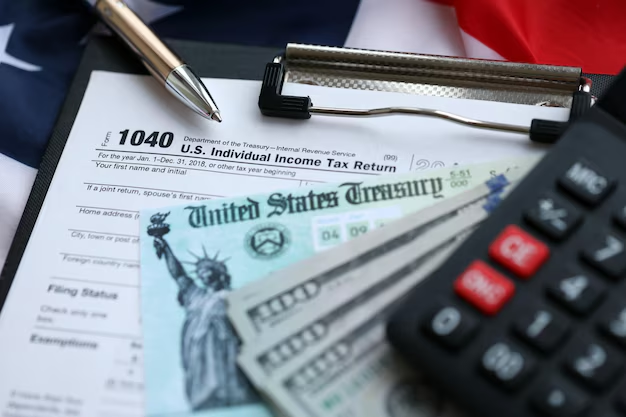Your Guide to Does Nc Have State Tax
What You Get:
Free Guide
Free, helpful information about TAX FAQ and related Does Nc Have State Tax topics.
Helpful Information
Get clear and easy-to-understand details about Does Nc Have State Tax topics and resources.
Personalized Offers
Answer a few optional questions to receive offers or information related to TAX FAQ. The survey is optional and not required to access your free guide.
Exploring State Tax in North Carolina: What You Need to Know
Is North Carolina a state with its own tax policies? The simple answer is yes. Let's explore the facets of taxation in North Carolina, providing a clear understanding of how it affects residents and those considering a move to the Tar Heel State.
Understanding State Tax in North Carolina
Navigating the world of taxation can often be bewildering. In North Carolina, understanding the basic structure of state taxes is crucial for residents and prospective movers.
Income Tax in North Carolina
Flat Tax Rate: North Carolina employs a flat income tax rate system. This means all residents pay the same percentage of their income in taxes, regardless of their income level. This flat tax rate applies uniformly, simplifying calculations for taxpayers.
Income Tax Filing: Residents need to file state income tax in addition to federal taxes. This process typically involves using state-specific tax forms and complying with deadlines set by the North Carolina Department of Revenue.
Sales Tax Overview
Sales and Use Tax: North Carolina levies a state sales tax, which applies to most goods and services sold within the state. This forms a significant part of the state's revenue system.
Local Sales Tax Variations: In addition to the statewide rate, local counties and municipalities may impose additional sales taxes. These local taxes can vary, so it's essential for consumers to be aware of the overall rate in their specific locality.
Bringing Context to Property Taxes
How Property Taxes Work
Property Assessment: Property taxes in North Carolina are determined based on the assessed value of real estate. Local assessors evaluate property values, which then serve as the basis for taxation.
County Tax Rates: Each county sets its own property tax rate, contributing to the total property tax bill. Understanding these varying rates is important for homeowners, as they directly influence the cost of owning property in different regions.
Important Exemptions
Homestead Exemptions: North Carolina offers homestead exemptions for qualifying homeowners, providing some relief from property taxes. These exemptions are particularly beneficial for seniors and those with disabilities.
Agricultural Use Assessment: For owners of agricultural land, there are special considerations and lower assessment rates, supporting the state's farming industry and reducing tax burdens for these properties.
Navigating North Carolina's Corporate Taxes
Business Tax Environment
Corporate Income Tax: Businesses operating in North Carolina are required to pay a corporate income tax. Like the individual income tax, this is imposed at a flat rate, simplifying compliance for businesses.
Sales Tax on Business Purchases: Companies also face state and local sales taxes on certain business-related purchases, which can impact operational costs.
Incentives and Benefits
Tax Incentives: North Carolina offers various tax incentives to attract and retain businesses. These incentives can include credits, exemptions, and grants, aimed at stimulating economic growth within the state.
Small Business Considerations: Small businesses have unique tax obligations and opportunities for deductions and credits. It's crucial for entrepreneurs to understand these specifics to optimize their tax liabilities.
Tax-Friendly Strategies and Tips
Planning Ahead
Utilizing Exemptions Wisely: Understanding and applying for applicable tax exemptions and credits can substantially reduce your tax burden. Researching eligibility and conditions for these exemptions is a proactive step in tax planning.
Filing Deadlines and Errors: Always adhere to tax filing deadlines to avoid penalties. Double-check returns for errors, which can delay processing and lead to unnecessary complications.
Engaging with Professionals
Tax Consultants: For individuals and businesses alike, consulting with a tax professional can offer invaluable insights. These experts can provide guidance on deductions, exemptions, and compliance with state tax laws.
Keeping Updated: Tax laws and rates can change, so staying informed about current tax policies through professional advice ensures compliance and optimized tax strategies.
Key Takeaways: Navigating North Carolina State Taxes
Here's a quick summary of what we've covered, focusing on the essentials:
- 📜 Flat Income Tax Rate: North Carolina utilizes a flat income tax rate, simplifying taxpayer planning.
- 🛍️ Variable Sales Tax: State and local sales taxes impact different activities; check local rates for accuracy.
- 🏠 Property Tax Awareness: Understand local property tax rates and explore exemptions to alleviate tax burdens.
- 🏢 Business Taxes: Corporate entities must navigate both income and sales taxes, with potential incentives available.
- 🔍 Expert Guidance: Engage with tax professionals for personalized advice and to remain up-to-date on policy changes.
Understanding North Carolina's state tax system is crucial for residents, business owners, and newcomers to the state. By grasping the fundamentals and leveraging available resources, you can navigate taxes with confidence and make informed financial decisions.
What You Get:
Free TAX FAQ Guide
Free, helpful information about Does Nc Have State Tax and related resources.

Helpful Information
Get clear, easy-to-understand details about Does Nc Have State Tax topics.

Optional Personalized Offers
Answer a few optional questions to see offers or information related to TAX FAQ. Participation is not required to get your free guide.


Discover More
- a Sales Tax Is a Type Of
- a Tax Exemption
- Am I Tax Exempt
- Are 401k Contributions Tax Deductible
- Are 529 Contributions Tax Deductible
- Are 529 Plan Contributions Tax Deductible
- Are Association Fees Tax Deductible
- Are Attorney Fees Tax Deductible
- Are Campaign Contributions Tax Deductible
- Are Charitable Donations Tax Deductible
